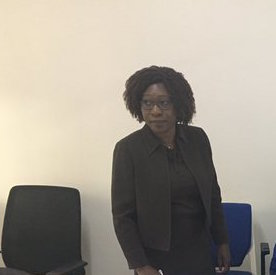By Joyce Mukucha
The African Risk Capacity (ARC) is working towards adopting a gender mainstreaming approach to ensure that gender issues are systematically integrated in its operations, both internally as an organisation, and externally with its Member States.
This will be achieved through sustained gender and disaster risk management (DRM) capacity building efforts which will be engaged in by members of the Technical Working Groups and well as collaborating Civil Society Organisations (CSOs).
Disaster Risk Management and gender have been both defined as cross-cutting developmental issues, thus, mainstreaming gender equality into DRM has been specified as crucial.
The Gender Advisor for ARC, Dr Christie George said it was vital to apply a gender lens to disaster risk financing to ensure that there is transformation of DRM approaches in guaranteeing equality for vulnerable men and women in the ARC Member States.
She was speaking during the African Risk Capacity workshop for Eastern and Southern African (ESA) region which roared into life yesterday in Harare. Dr George reviewed that there was lack of gender equality institutional mechanisms in as much as risk and disaster management in Africa was concerned.
“There is lack of DRM data and integration pertaining gender issues in Africa and ARC is aimed at extending support advocacy actions through capacity building and sensitisation workshops. This is to ensure that affirmative actions are implemented for stabilisation as well as ensuring that at every level gender inequalities in disaster related issues are combated.
“Women have been always marginalised in all aspects including risk management issues. We realise that women in agriculture are essential to sustainable livelihoods but due to the fact that they are always segregated, they are at great risk of disasters which cause them to be vulnerable to poverty. In this regard, ARC adopts a differentiated approach to issues of gender equality and disaster related issues by engaging in sustained policy dialogue and advocacy for gender transformative DRM policies,” said Dr George.
Lobbying integration in disaster related institutions and organisations of continental, regional and national levels was described as essential in improving gender balance pertaining gender and DRM issues in Africa.
She applauded Rwanda for taking strides in combating issues to do with gender inequalities and urged gender ministries in each country to be involved in gender issues and DRM spectrum.
“There is need for strengthening of the cooperation and coordination between Civil Society Organisations and government bodies in design and implementation of policies. We need to go beyond what the African Risk Capacity does, through partnerships that will enable us to reach macro-levels. We intend to go down through sensitisation and review issues that continue to leave women behind and stricken by poverty and natural shocks,” she said.
Adoption of gender mainstreaming approach by ARC aligns with the gender policies of ARC’s financial partners, especially Canada’s Feminist International Assistance Policy. The ARC presents its Gender Strategy to the participants and receives feedback, customisation and contingency planning processes.






